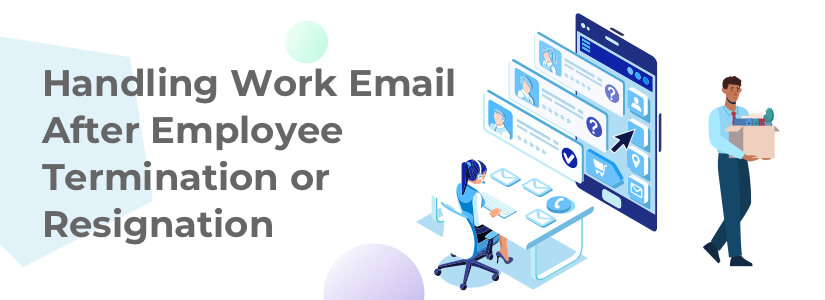
# Planning for Your Early Retirement: A Comprehensive Guide to an Empowering Exit
Achieving **F.I.R.E. (Financial Independence, Retire Early)** represents a transformative milestone—an individual victory that signifies your liberation from dependency on a paycheck and the daily grind. It’s a moment worth celebrating, yet it also calls for a strategic approach to ensuring a seamless transition into the next thrilling phase of your life. Regardless of whether your early retirement is just weeks, months, or years ahead, this article presents essential steps for orchestrating your departure, tackling workplace hurdles, and celebrating the monumental success of retiring early.
—
## ### **The Delight and Difficulty of Leaving on Your Own Terms**
Once you’ve reached your **F.I.R.E. number**—the magical figure that guarantees you can sustain yourself through your savings and investments—it’s time to gear up for what could be the most empowering “I quit” you’ll ever express. However, resigning from a job you no longer require doesn’t imply that you should hasten your exit. A well-thought-out plan can assist you in optimizing benefits, preserving relationships, and departing with a sense of accomplishment.
—
## ### **Your Countdown to F.I.R.E.**
A systematic countdown approach ensures you won’t overlook essential details while exiting your workplace under your conditions. This checklist, organized by timeframes, provides you with insights on the actions to take as your pivotal day approaches.
—
### ***1 to 2 Years Prior to Early Retirement***
This initial phase of planning focuses on preparation and establishing the foundation for a stress-free retirement.
– **Cultivate a Robust Network Beyond Work:** Engage with organizations, clubs, or online communities to broaden your social and professional networks.
– **Evaluate Your Financial Situation:** Reassess your anticipated income sources and expenses for retirement. Confirm that your investments are well-diversified and tax-efficient (e.g., balancing Roth IRAs, traditional IRAs, and brokerage accounts).
– **Plan for Healthcare Needs:** Investigate future healthcare options, whether through the ACA marketplace, COBRA, or other alternatives.
– **Examine Retirement Plans and Social Security Benefits:** Utilize resources like [SSA.gov](https://www.ssa.gov) to verify your earnings record, forecast future Social Security income, and evaluate how early retirement will affect benefits.
– **Review Pension or Bonus Vesting Guidelines:** Understand if you’ll forfeit long-term benefits by leaving earlier than specified.
—
### ***6 to 12 Months Prior to Early Retirement***
As your early retirement approaches, it’s time to take a strategic approach to conclude remaining tasks.
– **Ensure Any Pending Bonuses or Vesting Are Secured:** Time your exit to maximize eligibility for bonuses, matching contributions, or equity compensation.
– **Organize Financial Accounts:** Confirm that you have online access to all employer-sponsored retirement accounts and payroll systems outside the corporate portal.
– **Prepare for Health Insurance Changes:** Investigate COBRA or utilize a Health Savings Account (HSA) to get ready for healthcare expenses.
– **Reevaluate Subscriptions and Insurance:** Trim recurring costs such as car and homeowner’s insurance to align with your financial situation and lifestyle aspirations.
—
### ***3 to 6 Months Prior to Early Retirement***
This is the final stretch, focusing on logistics and finalizing arrangements.
– **Choose Your Departure Date Wisely:** Align your designated retirement date with bonus payments, vacation payouts, or healthcare transitions.
– **Examine Employer Policies:** Gather copies of performance reviews, employment agreements, and relevant policies to refer back to after your departure.
– **Distinguish Work from Personal Life:** Erase personal information from your work devices, update personal accounts with your private email and phone number, and compile contact information for colleagues you wish to maintain connections with.
– **Recognize Small Victories:** Utilize those remaining PTO days or take advantage of company perks like volunteer days or educational stipends for personal gain.
—
## ### **Creating the Ideal F.I.R.E. Resignation Letter**
Your resignation letter is more than just a customary formality in the context of F.I.R.E.—it’s a declaration of empowerment. Take this opportunity to express the thought, planning, and intention that underlie your departure.
### **Essential Components for a Memorable Letter:**
1. **Express Gratitude:** Show appreciation for mentors, colleagues, or the company culture that have influenced your career positively.
2. **Celebrate Your Success:** Emphasize that you’re leaving because you’ve attained financial independence—a notable achievement.
3. **Keep it Concise and Positive:** While being personal, word your departure positively and steer clear of detailing differences or grievances. For example:
*“I recognize that retiring in my 40s may appear unconventional, but after dedicated pursuit of F.I.R.E., the moment has arrived for me to begin my next chapter of intentional living. I hold immense gratitude for the experiences and relationships I’ve nurtured here, and I depart with only fond memories.”*
Your resignation letter may even become a